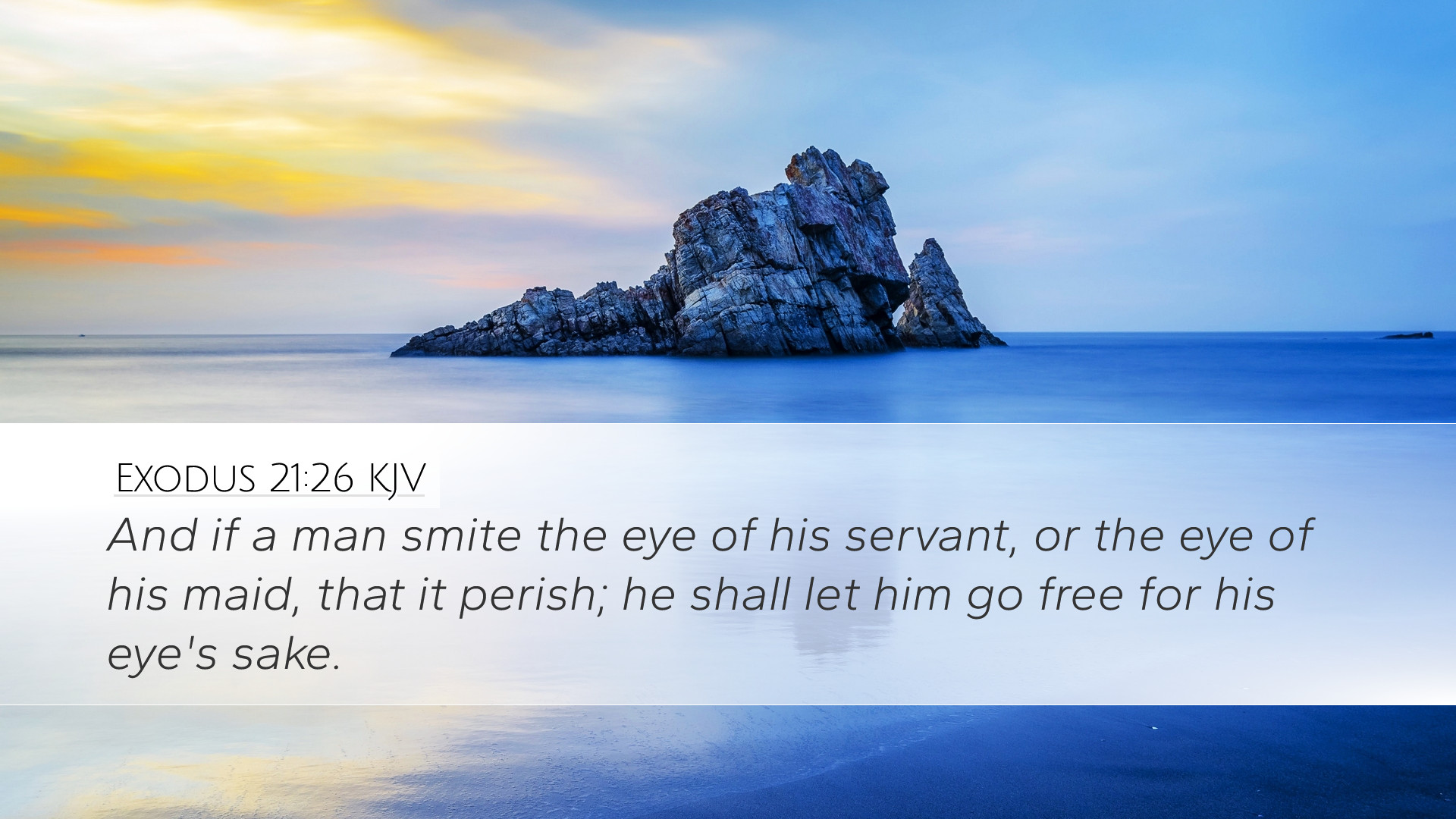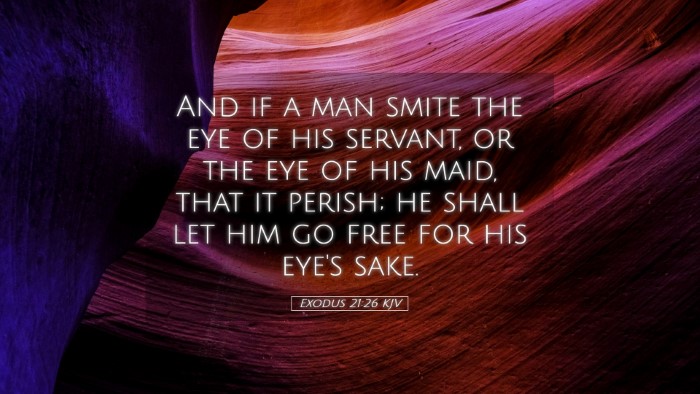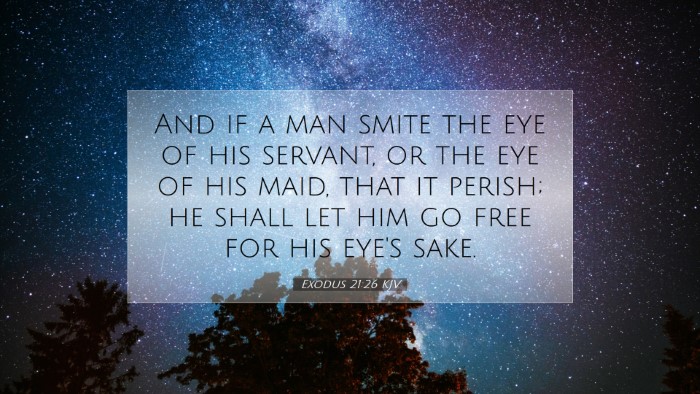Commentary on Exodus 21:26
Verse: "If a man strikes the eye of his male or female servant and destroys it, he shall let him go free for the sake of his eye."
Introduction
This verse from Exodus 21:26 is part of the broader legal framework provided for the Israelites. These laws detail the rights and responsibilities of servants and their masters, emphasizing justice, equity, and the consequences of physical harm. Understanding this verse requires us to explore the cultural context of servitude in ancient Israel and the implications of the law presented by Moses.
Interpretation and Insights
Contextual Background
In the ancient Near East, servitude was a common practice and varied significantly in terms of rights and living conditions. The Hebrew people were given a code that aimed to protect the marginalized, including servants. Unlike modern interpretations of slavery, Hebrew servitude had limitations and humane considerations.
Legal Framework
This verse illustrates the principle of proportional justice. Matthew Henry comments that the damage inflicted on the servant renders them entitled to freedom. This is an early example of the lex talionis, the principle of "an eye for an eye," which underscores the importance of measured retribution in civil law.
Human Dignity
Albert Barnes emphasizes that the treatment of servants reflects the moral and ethical standards of society. To harm a servant to such an extent that they lose an eye is to violate their dignity and reduce the value of human life, regardless of social standing. This law served to ensure that even the lowest among society were treated with respect and were entitled to justice.
Freedom and Restoration
Adam Clarke highlights that the act of giving freedom after such an injury is not merely punitive but restorative. It restores the servant's dignity and their right to live unencumbered by the master who caused them harm. The idea of restoration resonates throughout the biblical narrative, where God continually seeks to restore His people.
The Theological Implications
Justice and Mercy
This verse illuminates the balance of justice and mercy in the law. While justice demands accountability, mercy offers the chance for redemption and restoration. Pastors and theologians can draw connections between this civil legislation and the broader biblical themes of God's justice tempered by His mercy.
Christological Reflection
In a Christ-centered perspective, this verse can be seen as foreshadowing the ultimate act of grace where Christ, our servant, is wounded for our transgressions, providing us with spiritual freedom. The suffering servant in Isaiah finds its peak expression in Jesus, who not only restores but liberates humanity through His sacrifice.
Practical Applications
This verse's principles can be applied in contemporary settings. As followers of Christ, we are called to model our actions after God's justice and His compassion. Discussions on workplace ethics, treatment of employees, and the dignity of individuals echo these ancient laws.
Empathy and Advocacy
- For Pastors: Encouraging congregations to advocate for just treatment of individuals in societal systems.
- For Students: Engaging in discussions about the ethics of treatment in various modern institutions.
- For Theologians: Delving deeper into the nature of God’s justice in the Old Testament and its implications in New Testament theology.
Conclusion
Exodus 21:26 serves as a significant example of how biblical law functions to protect individuals and promote a moral society. The insights from Matthew Henry, Albert Barnes, and Adam Clarke illuminate the deeply embedded values of justice and mercy, which resonate with the heart of God’s intention for His people. As we reflect on this passage, may it lead us to uphold the dignity of all individuals, advocate for justice, and recognize the divine call for restoration in our communities.


